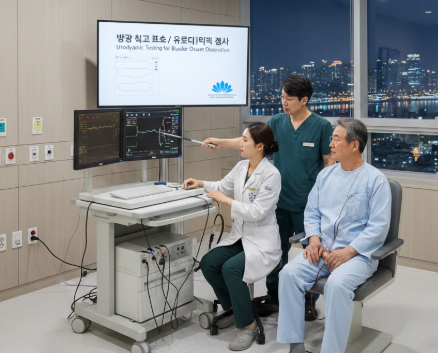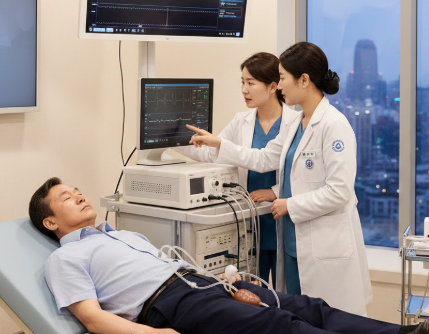Choosing to undergo labiaplasty surgery abroad can be an excellent option for international patients seeking expert care, competitive pricing, and privacy. However, it requires thorough planning to ensure a safe procedure and smooth recovery. Here’s a comprehensive guide on how to plan your labiaplasty surgery as an international patient.
1. Research and Select a Qualified Surgeon and Clinic
- Verify Credentials:
Look for board-certified plastic surgeons or gynecologists specializing in labiaplasty. Confirm their certifications through official medical boards or societies such as the International Society of Aesthetic Plastic Surgery (ISAPS). - Check Hospital Accreditation:
Choose clinics or hospitals accredited by recognized bodies like Joint Commission International (JCI) to ensure they meet global safety and hygiene standards. - Read Reviews and Testimonials:
Patient reviews, before-and-after photos, and video testimonials provide insights into surgeon skill and patient satisfaction. - Contact Multiple Clinics:
Reach out to several clinics to ask about their experience with international patients, surgical techniques, pricing, and postoperative care.
2. Schedule Virtual Consultations
- Initial Assessment:
Many surgeons offer virtual consultations via video calls, where you can discuss your goals, medical history, and get professional recommendations. - Ask About Surgical Techniques:
Ensure the surgeon explains the options available for labiaplasty (e.g., trim technique, wedge technique) and which is best suited for your anatomy. - Clarify Costs and Inclusions:
Request a detailed estimate including surgeon fees, anesthesia, facility charges, medications, and follow-up visits.
3. Prepare Medical Documentation
- Gather Medical Records:
Compile any relevant medical history, allergies, previous surgeries, and current medications to share with your surgeon. - Preoperative Tests:
Some clinics may require blood tests or imaging before surgery; arrange for these locally if possible to save time.
4. Plan Your Travel and Accommodation
- Choose a Safe Location:
Opt for cities known for quality medical tourism with reliable infrastructure and easy access to your clinic. - Book Accommodations Near the Clinic:
Staying close to your surgical facility makes pre-op appointments and post-op check-ups convenient. - Arrange Transportation:
Consider airport transfers and transport during your stay, especially if mobility will be limited after surgery. - Check Visa and Travel Requirements:
Verify visa regulations, travel insurance, and any quarantine rules if applicable.
5. Understand Preoperative Instructions
- Avoid Certain Medications:
Your surgeon will advise you to stop blood thinners, anti-inflammatory drugs, or supplements that increase bleeding risk. - Fasting and Hygiene:
Follow instructions on fasting before surgery and personal hygiene to reduce infection risks. - Arrange for Support:
Have someone accompany you on travel and assist during the first days after surgery, as you may have limited mobility.
6. Prepare for Surgery Day
- Arrive Early:
Plan to arrive at the clinic or hospital with ample time for check-in and preoperative preparations. - Wear Comfortable Clothing:
Loose, easy-to-remove garments are recommended. - Follow Surgeon’s Guidelines:
Adhere strictly to any last-minute instructions.
7. Postoperative Care and Recovery
- Plan for Rest:
Schedule enough days to rest and avoid strenuous activities as advised by your surgeon. - Follow Wound Care Instructions:
Maintain hygiene, change dressings if needed, and watch for signs of infection. - Attend Follow-Up Visits:
Some follow-ups can be done virtually, but initial post-op checkups usually require an in-person visit. - Manage Pain and Swelling:
Use prescribed medications and cold compresses as directed. - Stay Hydrated and Eat Nutritiously:
Proper nutrition supports faster healing.
8. Prepare for Return Travel
- Confirm Recovery Status:
Only travel after your surgeon clears you to fly, usually at least 1-2 weeks post-op. - Pack Comfortable Clothing:
Loose underwear and clothing to avoid irritation during travel. - Stay In Contact:
Have contact details for your surgeon or clinic if you experience any complications after returning home.
9. Plan Long-Term Follow-Up
- Local Doctor Coordination:
Inform your primary care provider or gynecologist about your surgery for ongoing care. - Monitor Healing:
Watch for any unusual symptoms like persistent pain, bleeding, or infection and seek medical help promptly. - Consider Telemedicine:
Many international clinics offer virtual follow-up consultations to monitor your progress remotely.
Final Tips
- Avoid Rushing:
Take your time to research and plan thoroughly — surgery is a serious commitment. - Communicate Openly:
Ask questions and express any concerns to your surgeon before, during, and after the procedure. - Prioritize Safety Over Cost:
Don’t compromise on quality and safety to save money.




